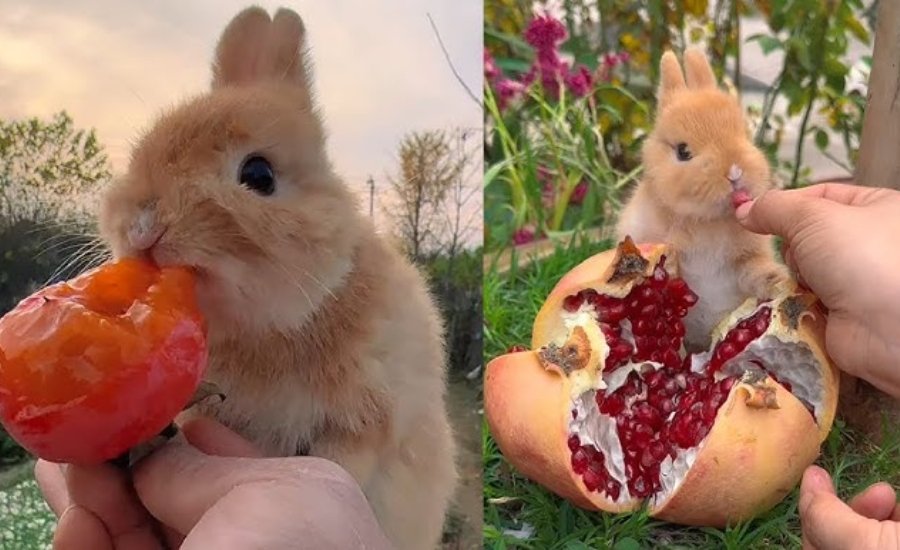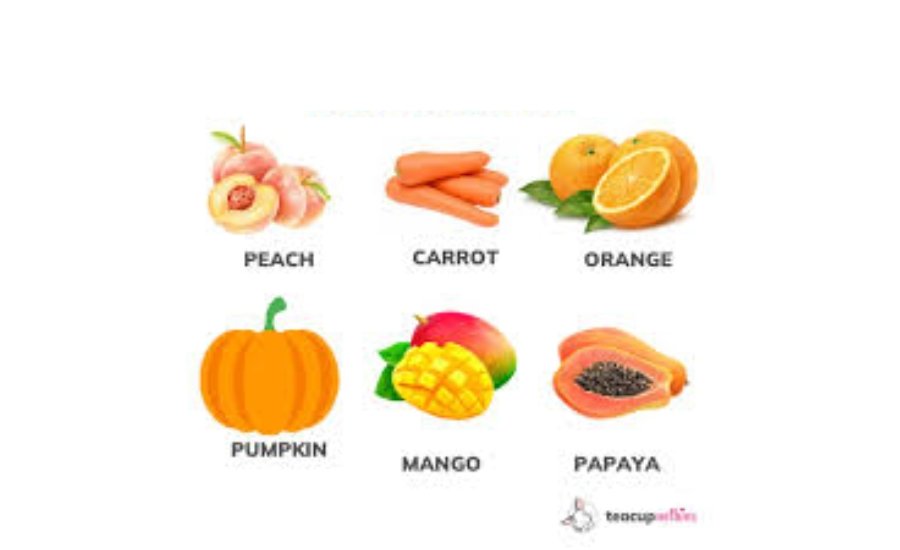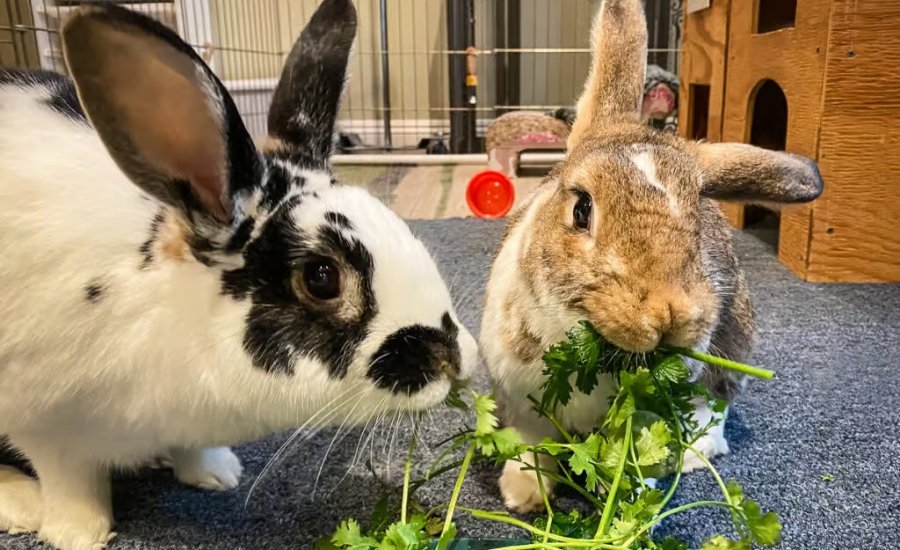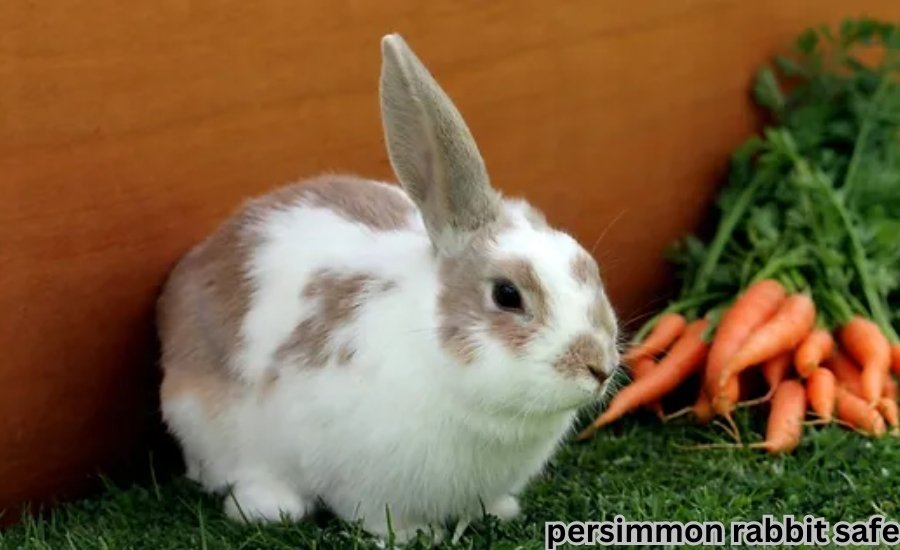Persimmon rabbit safe are herbivores, meaning that they primarily consume plant-based foods like grass. To maintain good health and welfare for these furry companions, their daily food plan should provide essential vitamins and nutrients; including including hay, fresh vegetables and limited fruits into their routine diet plan. Understanding rabbit nutrition is critical in order to ensuring optimal wellbeing!
What Makes a Balanced Diet for Rabbits?
Persimmon rabbit safe diets must focus on providing them with plenty of hay in order to maintain good digestive health, providing essential fiber that may prevent digestive health issues from emerging. Meanwhile, leafy greens such as kale, spinach and parsley provide necessary vitamins and minerals whereas apples, berries, watermelons or similar fruit varieties should only be fed responsibly due to their sugar content.
Why Fruits Should Only Be Occasional Treats?
Fruits make delectable treats for persimmon rabbit safes, yet are high in sugar content. While sugar provides energy sources that support rabbit health and wellness, too much of it may lead to obesity or digestive issues; thus, fruits should only be given occasionally as treats. When selecting persimmons as treats it’s crucial that these do not disrupt their balanced diet plan in any way.
Can Rabbits Eat Persimmons?

Persimmons are nutritious fruits that many humans enjoy eating, yet some wonder whether persimmons could also form part of a rabbit’s diet. Let’s examine this issue further to understand whether persimmons could make for an appropriate part of their daily food supply.
Nutritional Profile of Persimmons
Persimmons contain vitamins A and C that provide essential support for rabbit immune health as well as skin wellness, plus antioxidants, fiber, essential vitamins, and essential minerals essential to overall wellbeing in small creatures like rabbits. But due to their high sugar content they should only be fed occasionally!
Are Persimmons Safe for Rabbits?
Yes, persimmon rabbit safe can generally be considered safe when introduced in small quantities and offered with care and consideration. When giving persimmons for the first time to your rabbit it should be ensured the fruit is fully ripened without seeds – offering only small pieces at first to avoid potential choke hazards.
As some rabbits may have delicate stomachs, it’s essential that when trying new fruits they start small so as to check for adverse reactions or signs. Always start off slowly in case there are any negative results from any adverse reactions.
Benefits of Feeding persimmon rabbit safe
Persimmons offer many health advantages when consumed in moderation, from their rich vitamin A content supporting eye and skin health to immunity boosting vitamin C benefits and fiber providing digestive assistance for healthy gut function and regular bowel movements.
Risks Associated with Persimmons
Persimmons provide many health advantages for rabbits; however, overfeeding may cause diarrhea, weight gain or digestive problems due to its high sugar content. Therefore, persimmons should only be fed occasionally rather than being included as part of your regular rabbit’s diet plan.
Guidelines for Feeding Persimmons to Rabbits
If you choose to feed your rabbit persimmons, there are a few rules you must abide by for their wellbeing and safety.
Proper Serving Sizes
Moderation is key when feeding persimmons to your rabbit safely; most rabbits require just a slice or two at most. Too many pieces could overwhelm their digestive systems with too much sugar content; furthermore, you should cut up persimmons into manageable pieces in order to prevent choking risks.
Frequency of Persimmon Treats
Persimmons should only be offered occasionally as treats in order to maintain a balanced diet for your rabbit and ensure it receives sufficient hay and vegetables as sources of essential nutrition.
Signs to Monitor for Allergies or Overconsumption
As soon as persimmons enter your rabbit’s diet, be vigilant for allergies or digestive issues like diarrhea, bloat and lethargy. If any such signs appear, reduce or discontinue persimmon consumption immediately while consulting your vet immediately.
Other Rabbit-Friendly Fruits

Persimmons may be one of the best fruits to feed to rabbits safely; however, other fruits can also be offered moderately for optimal rabbit care.
Common Safe Fruits: Apples, Berries, and Watermelon
Apples (without seeds), strawberries and raspberries as well as watermelons are excellent fruit alternatives that are safe for persimmon rabbit safe, offering lower sugar counts while providing various important vitamins. All should be provided sparingly to avoid overloading your pet with too much sweetness.
Exotic Fruits to Consider: Mangoes, Papayas, and Persimmons
Mangoes and papayas provide healthy treats for rabbits when given in moderation, providing essential vitamins such as A and C. However, care must be taken when offering seeds or peels which could upset their stomachs. Persimmons are another safe exotic fruit to give rabbits.
Fruits with Precautions: Grapes, Peaches, and Plums
Mangoes and papayas provide nutritious treats for rabbits when provided in moderation, providing essential vitamins such as A and C. However, caution must be exercised when offering seeds or peels, which could upset their stomachs.
Fruits to Avoid for Rabbits
Not all fruits are suitable for persimmon rabbit safety; certain ones could pose serious health hazards and it’s essential that owners know which ones to avoid.
Toxic Fruits and Their Risks
Citrus fruits (oranges, lemons and grapefruits) may cause digestive issues in rabbits. Furthermore, certain fruits such as cherries, apricots and avocado can be toxic; thus it should never be fed directly to persimmon rabbit safe as doing so could present serious health complications to them.
How to Identify Unsafe Fruits
Keep your rabbit safe by restricting his or her access to fruit with high acidity or poisonous seeds or pits – such as citrus fruits – such as an excessively acidic fruit like citrus. Before offering any new fruit to them, always conduct research first so as to be certain it will not pose a health threat.
Persimmon Leaves and Stems: Are They Safe?
Many rabbit owners wonder whether persimmon leaves and stems are safe to give to their rabbit. While fruit should only be given occasionally, leaves and stems require special caution and must only be fed under veterinarian guidance.
Nutritional Value of Leaves and Stems
Persimmon leaves should not be harmful for rabbits, although their nutritional benefits might not match that of eating the fruit itself. Stems should be avoided since they can be difficult for rabbits to chew through and cause digestive issues.
Preparation Tips for Feeding Leaves
Whenever feeding persimmon leaves to your rabbit, ensure that they have been thoroughly washed to eliminate pesticides or chemicals that contain potentially toxic elements.When offering only small portions, monitor closely for signs of discomfort from their intake.
How to Introduce New Fruits to a Rabbit’s Diet
Introduce new foods gradually and monitor how your rabbit responds, such as persimmons.
Gradual Introduction and Observation
Start small by giving a piece of fruit. Monitor its behavior and digestive health over time for any signs of allergies or digestive discomfort; increase serving sizes gradually if there are none. Always stay alert for allergies or digestive discomfort as symptoms.
Common Signs of Digestive Issues
Signs of digestive distress in persimmon rabbit safe foods could include diarrhea, bloating or decreased appetite. If this occurs after indulging in persimmons or any other fruit-rich treats such as applesauce, decrease their consumption and consult your veterinarian as soon as possible.
The Role of Fruits in a Rabbit’s Diet

Balancing Hay, Vegetables, and Fruits
Persimmon rabbit safe diets should include plenty of vegetables and fiber-rich hay as staple foods; fruits should only ever serve as treats or occasional rewards to add variety and excitement! Fruits like persimmons should serve only as treats that add variety.
Why Fruits Should Be Treated as Occasional Treats
Due to their sugar content, fruits should not form an essential part of your rabbit’s diet; rather, treat them as special occasions only to reduce obesity or digestive discomfort in later years.
Conclusion
Persimmon rabbit safe treats can make for delicious snacks when given in moderation and according to certain guidelines regarding serving size, frequency, and preparation. Just watch out for any digestive issues or allergies; and consult your vet if introducing new fruits. Keep their diet balanced by providing fresh vegetables along with occasional persimmon treats – your rabbit’s long life depends on it!
FAQS
Q: Can rabbits eat persimmons safely?
A: Yes, persimmons can be safely fed to rabbits in moderation with all seeds removed before offering small portions as treats in order to prevent digestive issues.
Q: What are the benefits of feeding persimmons to rabbits?
A: Persimmons contain essential vitamins A and C as well as fiber which could prove invaluable in supporting overall rabbit health when fed regularly.
Q: How much persimmon can I feed my rabbit?
A: Keep a few small slices of persimmon on hand each week; be mindful not to overfeed their pet as this could result in digestive upset and stomach ache.
Q: Are there any risks to feeding rabbits persimmons?
A: Consumption of persimmons should generally be safe; however, overeating may result in digestive issues like diarrhea. Always remove seeds before harvesting to minimize potential choking hazards and use only fully ripened fruit as food sources.
Q: Can rabbits eat persimmon leaves and stems?
A: No. Due to potential poisonous properties which could pose potential digestive health hazards for rabbits, persimmon leaves and stems should never be fed directly to rabbits.
You May Also Like: Wellness-Brands
